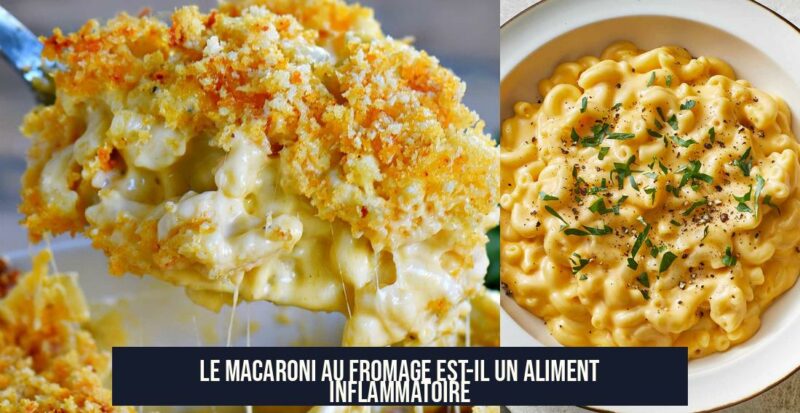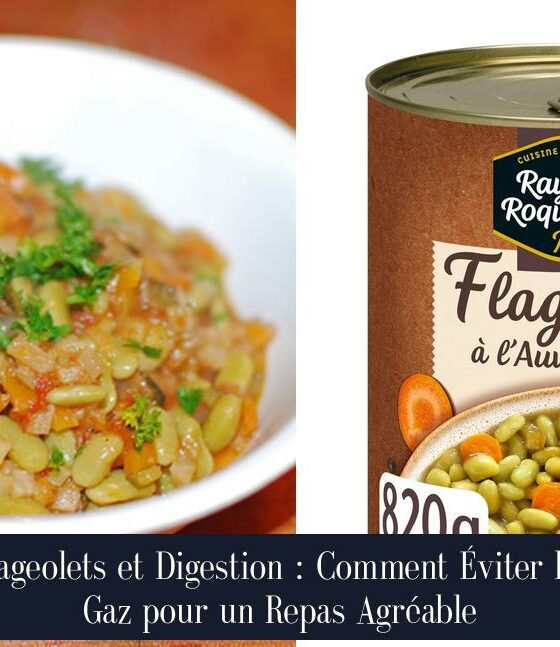Is Mac and Cheese an Inflammatory Food?
I. Mac and Cheese and Inflammation
Ah, mac and cheese. The ultimate comfort food. The creamy, cheesy delight that makes our hearts sing and our arteries quiver. But as you twirl that pasta around your fork, have you ever wondered if this beloved dish is, in fact, an inflammatory culprit? Before you go throwing away the Kraft in a fit of health consciousness, let’s dig into this topic with hilarity and a touch of skepticism.
Is mac and cheese inflammatory? Technically, it’s more of a mixed bag. On one hand, dairy products like cheese have been excused from the « inflammatory foods » club, at least according to some nutrition experts. But, on the flip side, many packaged varieties, especially the ones with that enticing neon orange cheese powder, could stir up your insides in a way that makes you wish you hadn’t dived in headfirst.
So, how unhealthy is mac and cheese? Well, let’s tally the potential red flags: high levels of saturated fats, refined carbohydrates, and possibly added sugars. This trio rivals any villain in a bad superhero movie! For instance, boxed mac and cheese often relies on refined white flour pasta, which is devoid of fiber and can cause those pesky blood sugar spikes. Talk about a rollercoaster ride your gut never signed up for!
Now, if you’re diving into some Annie’s mac and cheese, you might as well be buying a ticket to flavor town! But don’t expect an all-access health pass just because it’s organic! Annie’s scored a paltry 42 out of 100 in our health-o-meter. So yes, it packs some fiber and protein, but it also comes with a saturated fat and sodium warning label!
And if your gut isn’t feeling great after a mac and cheese binge? Well, you might be digesting more than just carbs and fat. The heavy cream or butter frequently used pushes this dish into the « calories waiting to attack » territory. Plus, let’s not forget the pasta itself, which can be hard to digest for some. Hello, discomfort!
II. Cheese and Inflammation
When we talk cheese, let’s be clear: there are good cheeses and then there are those sad, processed cheeses that haunt the grocery aisle like a horror movie. Naturally, cheese will raise a lot of questions about inflammation. Is cheese okay on an anti-inflammatory diet? To some extent, yes! Think of goat cheese! It’s often hailed as the least inflammatory cheese. Who knew a goat could be a hero in our health saga?
Goat cheese contains more A2 casein, which many people find easier to digest compared to the A1 casein in cow’s milk. It’s also rich in medium-chain fatty acids that won’t just sit there like your uncle during the BBQ; they’ll actually do something good for your body. So, if you want to keep inflammation at bay, chunk on some goat cheese! Just avoid the plastic-wrapped singles that don’t even pretend to be cheese.
But wait! Swiss cheese can come to the rescue too! It’s got probiotics, those cute little bacteria that actually mean you well. Plus, mozzarella contains some friendly Lactobacillus strains that can give your gut a high-five. Let’s not forget those aged cheeses like cheddar and parmesan that can sometimes surprise you with their health benefits. But remember to monitor your reactions to different dairy items because everyone’s digestive system is like a snowflake—unique!
III. Pasta and Inflammation
Let’s talk pasta, the butter to our cheese’s bread! Is pasta okay for inflammation? That really depends on what kind you’re slurping. Whole grain pasta is the wise choice, fortified with fiber and nutrients to keep your gut in good spirits. And before you scoff, yes, it can pull off that ‘healthy’ look and still taste good. Trust me!
If you think eating macaroni every day is a great idea, your nutritionist might bring out the emergency alarm. While it can be a staple in many diets, moderation is key. And try not to drown it in butter or mystery sauces unless you want an inflammatory fiesta!
And let’s be honest, there are some pasta dishes out there that could win awards for unhealthiness. If you see anything labeled « crispy chicken mac ‘n cheese » or « tortelloni Alfredo, » RUN! Just trust me on this one.
IV. Other Ingredients and Inflammation
If your mac and cheese needs a revamp, how about adding some veggies? They can be the unsung anti-inflammatory heroes to your cheesy mess. Whether they’re spinach, broccoli, or even a few cherry tomatoes, they all add nutrients and flavor without sending your inflammation levels into hyperdrive!
What about ingredients like peanut butter and eggs? Well, peanut butter can actually be anti-inflammatory, packed with omega-6 fatty acids and healthy fats. Looks like you can keep it off your « inflammatory foods » list! Meanwhile, eggs are a delightful source of protein that carries its own story of inflammation rarity. But watch out for those yolks if you’re sensitive— balance is key!
V. Inflammation: General Topics
In the grand hierarchy of inflammatory foods, processed meats, refined carbs, and excessive sugars sit at the top with their crowns shining bright. Each can wreak havoc on your body and transform your inner peace into a warzone. And don’t think just because something is tasty means it’s anti-inflammatory. Sure, that cheesecake might sing sweet nothings to your heart—but it’ll be wreaking havoc on your arteries!
Incorporating foods rich in omega-3 fatty acids, leafy greens, wholesome grains, and healthy fats brings balance to the chaos. And what’s lovely is that healthy meals don’t have to lack flavor! Infusing turmeric or ginger into dishes can also help you fight the inflammatory bad guys.
Ultimately, if mac and cheese is your guilty pleasure, enjoy it! Just don’t make it a lifestyle choice. Stick with moderation, balance it with wholesome ingredients, and listen to how your body reacts. Because if it sings “get out!” after a mac and cheese binge, you might want to take it as a sign to switch to quinoa! Your gut will thank you.





